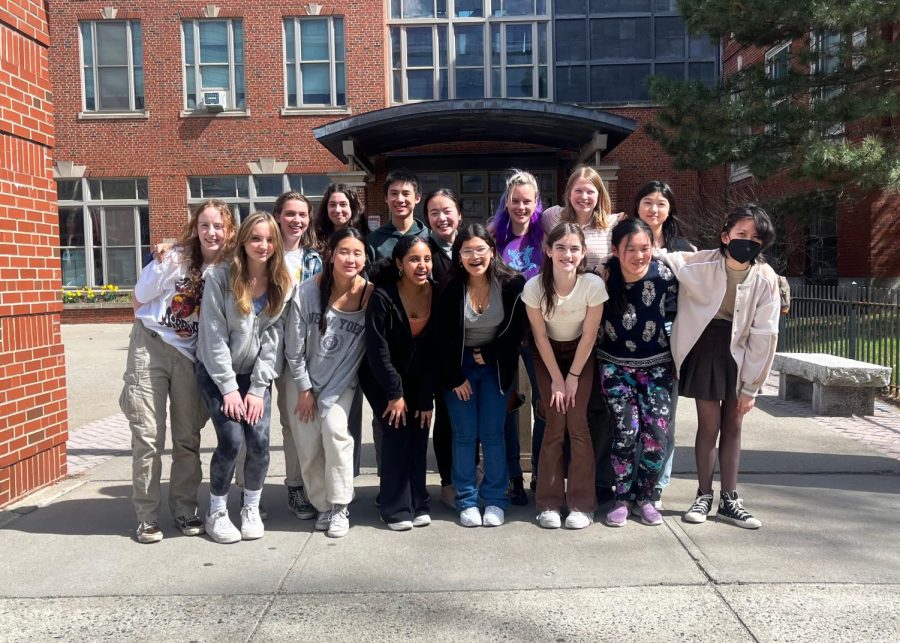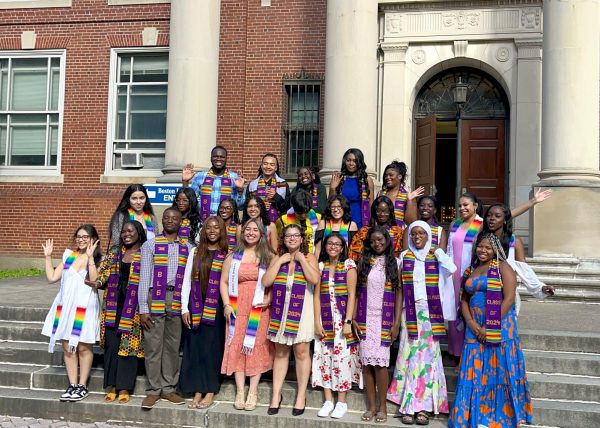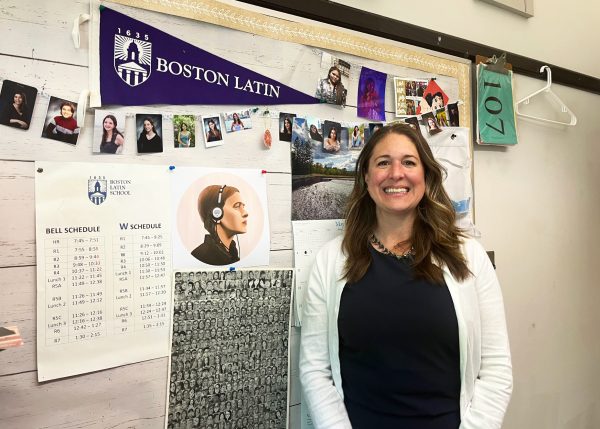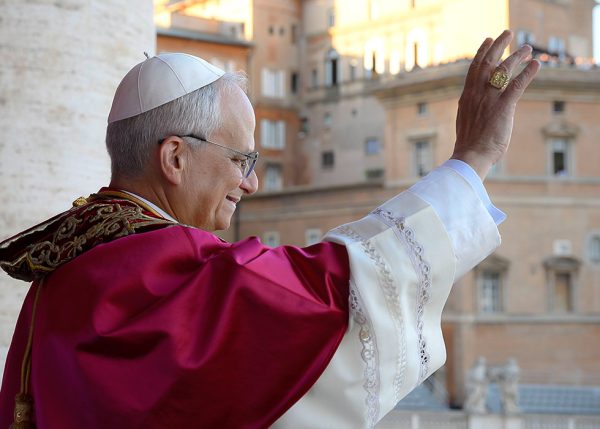Mock Argues No Moot Points
Move over, Harvey Specter! This April, Boston Latin School’s Mock Trial Team competed at the Yale Moot Court Tournament.
Hosted annually by the Yale Undergraduate Moot Court, Moot Court immerses participants in the world of Supreme Court oral arguments. Partners take on the role of lawyers, arguing a fictional case before judges, drawing on United States Constitution amendments and Supreme Court precedents.
Under the guidance of their coach Mr. Gerald Howland (‘66) and the leadership of co-captains Mirabelle Berman-Reinhardt (I) and Mira Yu (I), the team competed and earned several awards.
Three of BLS’s students ranked in the top 10 for speaker awards. Michelle Chen (III) obtained first place, and set a new record for the highest number of points ever awarded. Amirah Redwing (II) secured second place, and Emily Yu (III) took seventh place.
The recent competition offered an opportunity that had not been available in several years. “Part of the experience of presenting an argument to a panel of judges is that you get to see their responses in real-time and have them interrupt you,” remarks Yu.
During the rounds, judges evaluated the teams based on various criteria that included legal analysis, argumentation and presentation skills. The case partners argued involved two constitutional issues in a fictional case on Murray/State of New Storke v. Pritchett.
The first issue dealt with affirmative action regarding Native American students applying to medical school and whether it violated the fifth amendment’s guarantee of equal protection.
The second dealt with federal and state powers in the anti-commandeering doctrine of the tenth amendment. Additionally, students studied past Supreme Court cases to gain a holistic view of the case principles and law.
The competition not only provided an informational case packet for teams to prepare arguments for both sides of the case, but also offered a platform for participants to sharpen their legal reasoning, public speaking and critical thinking skills.
“I learned how to analyze complex documents, from creative arguments and arguing eloquently under demanding active questioning,” says Chen. Though preparation lasted several months of research and team meetings three times a week, the work yielded results.
Mr. Howland was not surprised by the team’s success. “In order to win, you can’t just be smart, you have to really be prepared.”
The team feasted on success, leaving no crumbs behind at Yale.






